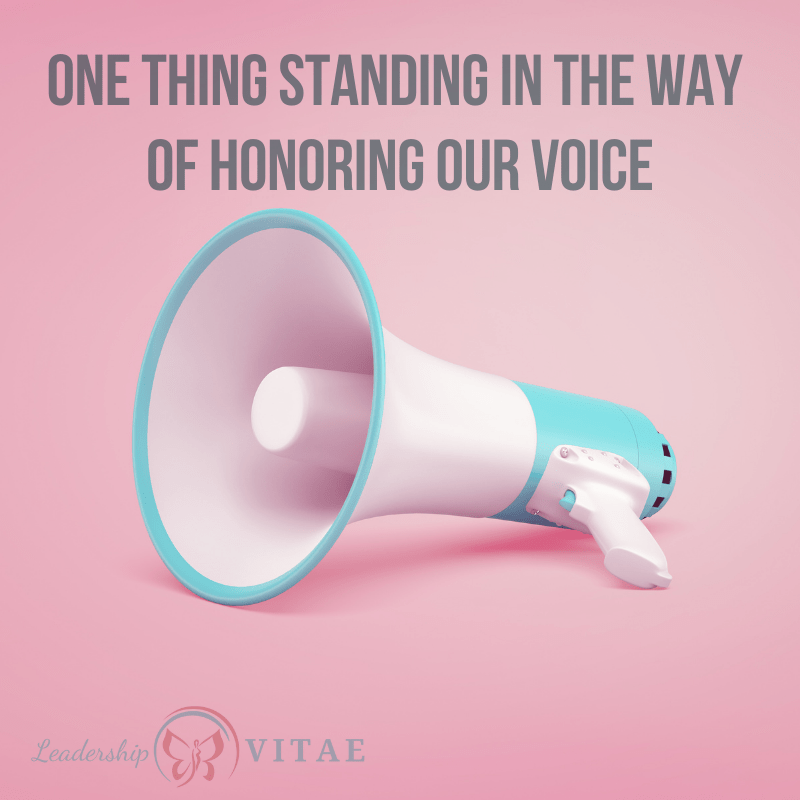
Talking with a friend of mine last night, she was recounting an experience with her fur baby. He was really sick following a visit to puppy day care. This was not the first time.
A few months ago, he was consistently coming home from care lethargic, or not eating right. For a while, she decided to keep him home. The other day, she finally sent him back, though it was against her better judgment. Not long after picking him up, they ended up at the emergency vet.
She had expressed concerns to me about him going back before. She is a strong-minded executive with a lot of data points to back up her decision. Her gut told her it was a bad idea, yet she sent him anyway. Why didn’t she follow the path she knew was right?
Guilt.
A moral balancing act
As my friend and I were talking, she explained why she sent him. She aspires to be a good person and help others. During the pandemic, she recognizes the financial hardships it is causing all around us. She wanted to do her part to help keep a small business operating.
Her choices came down to a conflict of her morals. As a good pet owner, she felt she shouldn’t send him to care. As a member of the broader community, she felt she should.
This is the pull of guilt and the evil “shoulds.” First, she felt guilty for pulling her pet from care due to the financial impact it would have on someone else. Now she feels guilty for her pet being sick, and not honoring her own judgement.
I really like the expanded definition of guilt from Wikipedia (more than Websters, which is terrible I know):
Guilt is an emotional experience that occurs when a person believes or realizes—accurately or not—that they have compromised their own standards of conduct or have violated universal moral standards and bear significant responsibility for that violation.
In this case, she allowed guilt to silence her. She is reflecting on how to better use her voice AND honor her moral compass in the future.
Permission to take up space
Lest anyone think I’m living in a glass house, I am suffering from my own battles with guilt at the moment.
I’ve been wanting a screened-in porch since I moved into my home two years ago. The deck is huge, it’s too hot in the summer, and a screen porch in the south is practically a requirement.
It’s been a struggle to get the project done, but I’ve got a great contractor who is almost complete. It looks amazing…except for the trim.
This is the final step. The part that will make the difference between it looking finished and looking like it was just slapped together. The rest looks so beautiful and is everything I dreamed of. The trim makes me cringe and looks half-ass.
Yet I’ve been hesitant to say anything. I took photos and sent them to folks with construction and woodworking experience. Even with their validation and my own experience in woodworking, I still hesitated.
Why? I am paying for this project. I know what good and done looks like. What is holding me back?
Guilt. In this case, for taking up space. For creating rework and frustration. Yet I’d be frustrated every time I look at it if I say nothing. It would eventually need to be redone, because I wouldn’t let it stand, and be mad at myself for not speaking up sooner.
Letting go of guilt
Whether it is a moral standard we are holding ourselves to, or a fear of taking up space, guilt is the great silencer. It is the world of “shoulds” that we use to judge ourselves and hold ourselves back.
I was exposed to Valerie Burton’s PEEL method to letting go of guilt during a women’s conference several months ago. I wrote it down on a post-it and put it on a board in my office. Then I promptly forgot about it.
This morning, following the conversation with my friend, and experiencing my own guilt over the screen porch, I’m digging back in.
In short, there are four steps:
- Pinpoint the guilt trigger. Is it taking up space? A moral dilemma? A “should”?
- Examine our thoughts. What is our self-talk saying in this situation?
- Exchange the lie for the truth. What else can we be saying to ourselves right now?
- List our evidence. What supporting facts do we have to support the new narrative?
I shared my thoughts with my friend last night, that she can be a good person and take care of her fur baby. She can find other ways to financially assist those in need, without putting him at risk.
She needed to hear that, as much as I needed to tell myself that I’m allowed to give feedback on a job I’m paying for. That it’s my home, and there’s no reason to stay quiet if something doesn’t look right. Even if my contractor looks ready to throttle me.
Using our voice
There is so much out there about being authentic and using our voice. To do that, however, we need to address what might be holding us back. The lies we are telling ourselves that keep us silent.
To truly honor ourselves, and our voice, is not to put ourselves above all others. Guilt can be useful to remind us that it’s not all about us. To remind us of our moral compass, or keep us from being unreasonable.
Which is why it’s important to examine our self-talk. Is the guilt true? If we’re being overly demanding or taking advantage of others, then maybe it is and we owe someone an apology.
If the guilt isn’t true, it can sit down and shut up. Guilt has no place in keeping us silent in the times where our voice needs to be heard.
We can use the PEEL method, or just take an honest look every time guilt rears its ugly head. Either way, managing guilt can help us honor ourselves and our voice.
Do you have other ways to keep guilt in check? Please share your thoughts or suggestions in the comments.








